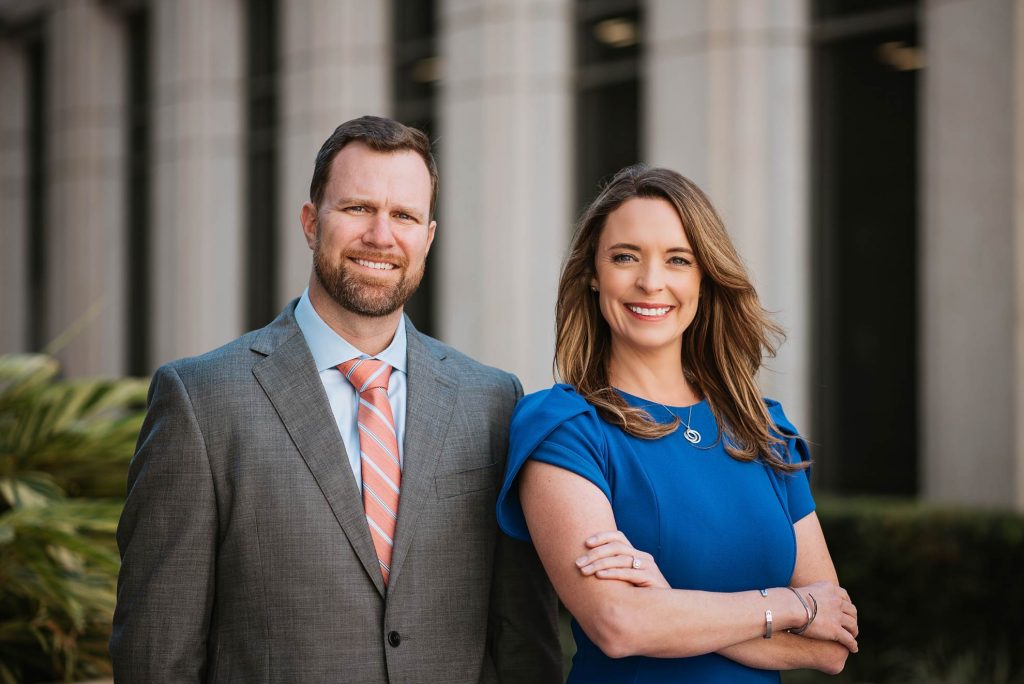Understanding Florida's Car Accident Compensation
No one expects to be in a car accident: it’s one of those things that always seems to happen to “someone else”. But with hundreds of car accidents happening in Florida every day, there’s a good chance that at some point, you’ll have to deal with the aftermath of a car accident that involves you or a loved one.
If and when that happens, you need to understand your options for compensation. Recovering from a car accident is a stressful process that requires a lot of healing. You need to get the compensation you deserve so you can focus on getting back to normal.
Understanding the Law: Florida as a ‘no fault’ state
All drivers in Florida must have insurance and carry proof of it in their vehicle. Your coverage needs to be a minimum of $10,000 for personal injury and $10,000 for property damage liability.
Since Florida is a ‘no fault’ state, each party involved in an accident will get compensation from their own insurance provider. It doesn’t matter who caused the accident.
There are exceptions to the no fault process, especially if you receive permanent injuries that are likely to result in a consistent need for medical care, lost wages, or future pain and suffering.
If this happens and your insurance doesn’t offer enough to cover recovery or repair costs, you can pursue a personal injury lawsuit to get the full compensation you deserve.
Florida car accident claims process: What to do if you’re involved
- Stop and report the accident.
Florida law says you must stop after an accident and exchange information with anyone involved. If anybody is injured or there’s any significant damage, you must call the police and report the incident right away.
- Gather information.
If you’re able to do so, keep track of as many details from the scene as possible, including what happened, the timing of the accident, and the final resting place of the vehicles. Take photos or videos of the damage, speak to witnesses, and cooperate with police in filing a report.
- Seek medical attention.
It is essential that you immediately see a doctor after a car accident, even if you don’t think you’re injured. You may have internal injuries or caused damage that won’t show itself for hours or days. Speaking to a medical professional right away ensures you’ll get any treatment you need. Documenting your struggles will also help with a personal injury lawsuit.
- File a claim with your insurance company.
All drivers in Florida are required to notify their insurance company of any accident. They’ll likely ask for any details, photos, or other evidence taken from the scene.
- Get advice from a personal injury lawyer.
The car accident laws in Florida can be complex, and insurance companies are not on your side. You need to speak with a personal injury lawyer as soon as possible to find out what your options are and to get the best chance of receiving the full compensation you deserve.
Taking action against other drivers in Florida
If you do decide to pursue a personal injury lawsuit, Florida’s Statute of Limitations states you have four years from the date of your incident to file your claim.
(Note: this is different from the time frame you must follow when reporting accidents to your insurance company. You might only have days or weeks, so be sure to check your policy.)
If your insurance is not adequate for the injuries or damage you received in an accident caused by someone else, you are entitled to sue both the at-fault driver and the owner of the at-fault driver’s vehicle.
If you’re choosing to seek compensation from the at-fault driver, be prepared to build your case and present evidence. You might not necessarily have to go to court and speak to a jury: with the right negotiator on your side, many cases can be settled before they go to trial.
Pure Comparative Fault System
Florida uses what’s called a “pure comparative fault system”. This means that if you’re partly responsible for an accident, you can still seek compensation for the other driver’s portion of responsibility.
For example, if you’re determined to be 40% at fault for an accident that caused $10,000 in damages, you’re still entitled to sue for $6,000 of those costs.
Action against other parties
Depending on the circumstances of your accident, you may be able to pursue a lawsuit against other parties besides drivers. Truck drivers, bicyclists, pedestrians, vehicle manufacturers or retailers, and sometimes even government agencies can all be named as causing your accident.
What if the other driver doesn’t have insurance?
Insurance is required by law in Florida – but that doesn’t mean there aren’t plenty of uninsured drivers on the road.
If you’re in an accident caused by an uninsured driver, you need to speak with your insurer and your lawyer right away for advice on how to proceed. Even if your insurance offers coverage for uninsured or underinsured motorists, these cases can still be complex.
Options for compensation
No-fault insurance can pay up to 80% of medical bills and up to 60% of lost wages.
If you pursue a personal injury lawsuit, you can get coverage for these expenses and much more, including future lost opportunities, pain and suffering, and necessary renovations to your home.
Snedaker Law Can Help
Getting the compensation you deserve for your car accident can be tough. Insurance companies are not your friend, which means you need a tough negotiator on your side.
Snedaker Law is well-versed in Florida car accident laws. We’ve worked with hundreds of victims to maximize their personal injury settlements and get them back on the road to a normal life.
Don’t leave your future to chance. If you’ve been involved in a car accident in Florida, contact Snedaker Law today

